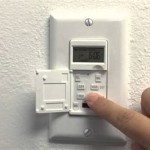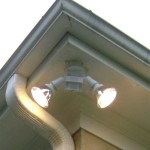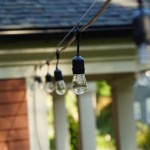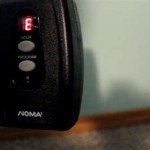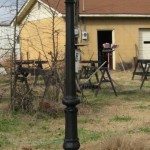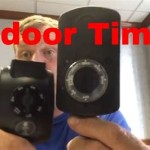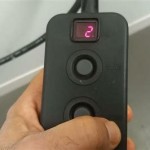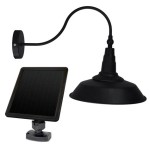How to Install Outdoor Low Voltage Lighting
As an outdoor enthusiast, illuminating your outdoor space at night with captivating lighting adds charm, beauty, and security to your outdoor haven. Low voltage lighting, particularly, offers a cost-effective and versatile solution for creating a welcoming ambiance and enhancing safety in your backyard, garden, or patio. If you're considering incorporating low voltage lighting into your outdoor oasis, follow these comprehensive guidelines to ensure a successful installation.
Choosing the Right Wattage
Selecting the appropriate wattage for your low voltage lighting setup is crucial. Low wattage lights, typically ranging from 12 to 24 volts, provide ample illumination while minimizing energy consumption. This not only saves you money on electricity bills but also enhances longevity of the bulbs. Determine the desired brightness and coverage area before selecting the wattage for your lighting fixtures.
Materials You'll Need
To embark on this DIY project, gather the necessary materials, including low voltage lighting fixtures, compatible transformer, outdoor-rated electrical wire, wire connectors, and a voltage tester. Ensure the wire you select is specifically designed for outdoor use to withstand weather elements and prevent electrical hazards.
Planning the Layout
Before you begin installation, meticulously plan the layout of your low voltage lighting system. Consider the areas you wish to illuminate, the placement of obstacles or existing structures, and the desired ambiance you aim to create. Sketching a diagram can help visualize the placement and ensure optimal lighting coverage.
Installing the Transformer
The transformer serves as the heart of your low voltage lighting system, converting standard household voltage to the lower voltage required by the lighting fixtures. Select a transformer with a wattage capacity that exceeds the total wattage of your lighting setup. Install the transformer in a dry, easily accessible location, following the manufacturer's instructions.
Connecting the Lighting Fixtures
Once the transformer is in place, connect the lighting fixtures to the low voltage wire. Use wire connectors to secure the connections, ensuring a snug fit to prevent loose connections and potential electrical issues. Always double-check the polarity (positive and negative terminals) to ensure proper functionality.
Laying the Wires
Carefully lay the outdoor-rated electrical wire along the pre-planned route, avoiding sharp bends or kinks. Secure the wire using landscape staples or wire clips to keep it in place and prevent tripping hazards. Ensure the wire is buried underground or concealed within a conduit for protection and aesthetics.
Testing the System
After completing the installation, thoroughly test your low voltage lighting system using a voltage tester. Turn on the power and check each fixture to ensure that it lights up properly. If any issues arise, carefully inspect the connections and wiring for any loose or damaged components.
Conclusion
Installing low voltage outdoor lighting can transform your outdoor space, creating a captivating and inviting ambiance while enhancing safety. By following these comprehensive guidelines, you can successfully install your own low voltage lighting system, enjoying the benefits of energy efficiency, versatility, and stunning illumination in your backyard paradise.

Outdoor Low Voltage Lighting Diy Family Handyman

How To Install Low Voltage Outdoor Landscape Lighting The Garden Glove

How To Install Low Voltage Outdoor Landscape Lighting The Garden Glove

How To Wire Outdoor Low Voltage Lighting Part 2

Wiring Installation Coastal Source

How To Install Low Voltage Outdoor Landscape Lighting 1000bulbs Blog

The Easiest Way To Install Low Voltage Landscape Lighting Abby Organizes

How To Install Low Voltage Landscape Lighting System World Leader In Cables

How To Install Low Voltage Outdoor Deck Lighting

How To Wire Outdoor Low Voltage Lighting Part 3
Related Posts
